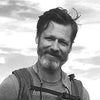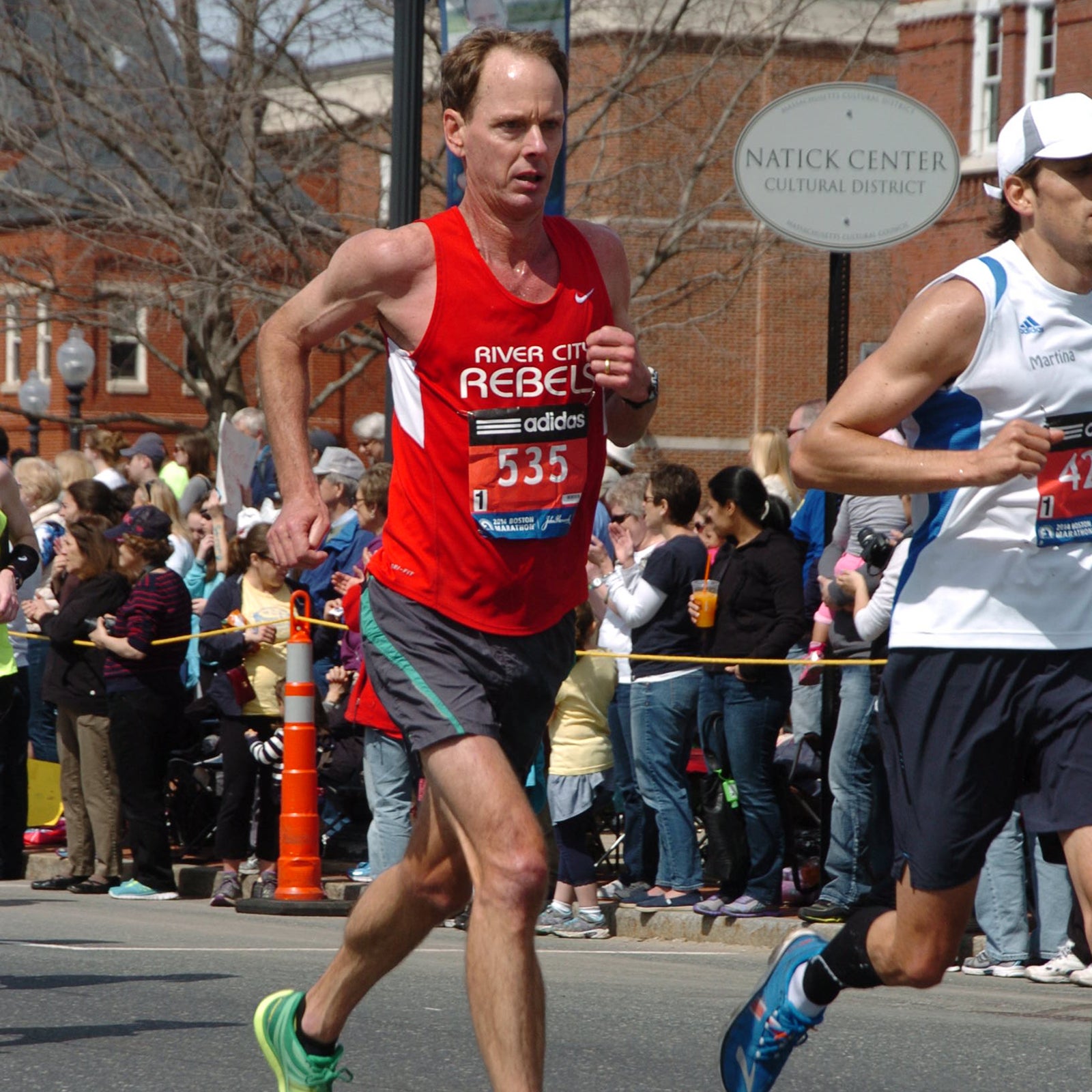For some, running a marathon is a lifelong goal. For others, it’s running a marathon in under three hours, which requires an average pace of 6:50 per mile. It’s an arbitrary time that’s so elusive that��some politicians even��lie about earning it—in 2012, then vice-presidential candidate Paul Ryan said he’d run a marathon in under three hours, a claim that was promptly debunked in the media. But not Iain Mickle. He ran his first sub-three-hour marathon (which was also his first marathon) in 1977, and his most recent��sub-three 42 years��later, three days after turning 59.��In doing so, he��set��a world record for the longest elapsed time between his first and most recent sub-three finishes.
“It’s an interesting record, because it implies some sort of consistency to your running career,” Mickle says. “But honestly, I didn’t even realize it existed until a few years ago. I had to go through an old copy of the San Francisco Chronicle��to find some sort of record of my finish time at my��first marathon.”
Mickle’s��first marathon was a bit of a fluke.��Although he was one of the top five��runners��on his high school’s cross-country team,��he had��never run that kind of distance before. Still, his father suggested they tackle the race together during his junior year. Mickle’s��already-strenuous cross-country practices helped him train for the new distance, along with a weekly 16-mile father-and-son��run. At the marathon,��Mickle finished in around 2:50, outpacing his father by ten��minutes.��“I wasn’t much of an athlete,” Mickle says. “I tried soccer and baseball��but didn’t do very well. Running was just putting one foot in front of the other. It didn’t take a lot of coordination, so��I stuck with it.”
Mickle had a lot of time to improve between his first and second marathons. While he��ran track at the University of California at Berkeley, focusing on the 5,000 meters,��he didn’t run another marathon until he was in his forties. “It’s a good distance for older runners,” Mickle says. “Your speed goes first when you age, but you can get better at marathons. A lot of running is just training your brain. The brain’s job is to stop you from killing yourself. The more you run, the more your brain understands that it’s OK and you can handle the suffering.” When he was 53 years old, Mickle��set his PR of��2:38:38��at the��Boston Marathon.
“Your speed goes first when you age, but you can get better at marathons. A lot of running is just training your brain.”
Now, at 59 years old,��Mickle puts a lot of effort into his training, logging 60 to 80 miles a week, including a long run on Sundays��that varies from 13 to 20 miles. He tries to hit the gym��once a week to work on stretching and basic strength training��but typically avoids cross-training. “I feel like, if you have time to train, you should probably be running,” Mickle says. “The real trick is trying to stay healthy. To run under three hours, you have to put in difficult workouts, but if you do too much, you’ll get hurt, and you’re out for six months. It’s a catch-22.”
Mickle admits that while��consistency is important,��his real secret to athletic success is simple: friendship. Having a solid group��to run with is what originally made cross-country attractive in high school, and it��has kept Mickle motivated to keep running and push himself as he’s aged. He trains with��a regular running group that meets multiple times a week to “suffer” together.
“I really enjoy my long runs and hard workouts because of the group of people I’m running with every day,” Mickle says. “It’s so important to have supportive people to run with. You need people to share goals with and be competitive with. It’s what keeps me going.”
Mixing it up also keeps things fun. Although��the marathon is still Mickle’s favorite distance, he has no plans of running one this year. For 2020, he’s racing shorter distances and focusing on speed training, which��includes��tempo runs and track work. He has his eye on competing at the USA Track and Field National Club Cross Country Championships in December in San Francisco. He’ll turn 60 just before the event��and is hoping to win his first national championship in the��8K race for runners 60 and over. Mickle is��also toying with the idea of entering��a��mile race, which��he hopes to run in under five minutes. “I’m not sure if I’ll do it, though,” Mickle says. “The mile distance scares the hell out of me. It’s so different. You can’t blink.”
After tackling these shorter races, Mickle hopes to run the Boston Marathon in 2021 and earn his first age-group win in that distance. As for his current world-record status, Mickle knows that he’ll probably lose the title by taking some time off from marathons. The previous record holder, , is looking to snatch it��back at a race early this year. But Mickle says he��likes that competitive back-and-forth. “The cool thing about this kind of record is that I know someone will break it, but if I run well at Boston in 2021, then I’ll have a chance to get it back,” Mickle says. “It’s cool, because it’s kind of like the last man standing will win.”


